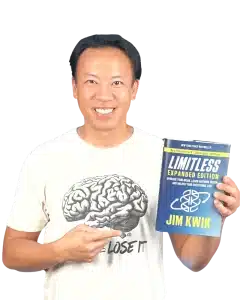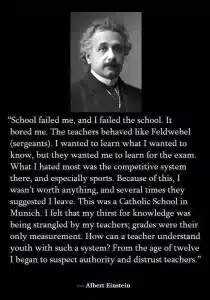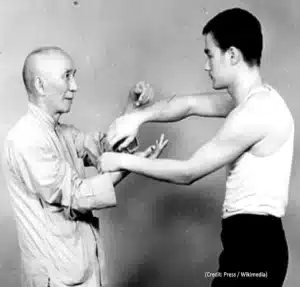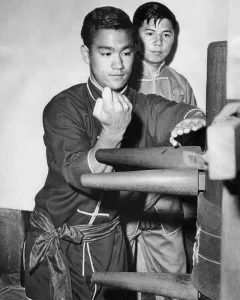Powerful Words of Encouragement for Students
Introduction:
According to the ancient Toltec wisdom system, anything is possible if you eliminate your negative beliefs. Today, we will discuss 6 common negative beliefs that prevent students from utilizing their minds effectively. Additionally, we will share some words of encouragement for students to overcome these negative belief systems and develop a positive mindset.
By stepping out of their comfort zones and adopting an open mindset, students can build a more positive belief system within themselves and increase focus and concentration on their studies.
Overview:
American brain coach Jim Kwik writes in his book Limitless: Upgrade Your Brain, “I used to struggle a lot with reading and memorizing since childhood. I thought my brain could only do so much. However, a childhood incident completely changed my negative thinking. From that day on, I realized that our brain, our memory, is far more capable than our thoughts.”

Further Jim Kwik recalls, “When I was 9-10 years old, we had a big family reunion. Around 25-30 people from our extended family gathered at a restaurant. It was a Saturday evening and the restaurant was quite crowded. After a while, the waitress came and started taking orders. After serving 10 to 12 people, she came back to take my order. I noticed she wasn’t writing anything. I placed my order and watched her carefully because I had complete trust that she couldn’t remember the separate orders of 25 people along with all the small details. There must have been some mistakes for sure.”
In the middle of all this, I observed that the waitress was serving other tables as well. I patiently waited for 20 minutes with anticipation. Surprisingly, she served everyone in the perfect order.
Jim Kwik refers to this incident, “That waitress taught me that our brain is far more efficient than our expectations. If that incident hadn’t happened in my life, I would have never even tried to improve my mind. Because I could never imagine that the human mind is capable of retaining so much information at once!”
Jim further speaks, “That waitress was like ‘Roger banister’ to me. Before Roger Bannister, people couldn’t even imagine running 1 mile in 4 minutes. Nobody thought of running that fast, so no one did it. However, just 60 days after Roger set the record, someone else broke his record as well. This was because people now understood that the human body could run that fast.”
If you want to achieve your goal in life, you first need to create it in your imagination.
Jim Kwik added, “That waitress showed me that I need to find a better way to use my brain.”
Powerful Words of Encouragement for Students
Jim has spent the last 25 years working with students to help them read faster, remember things better, and use their brains more efficiently.
Over the years, he has discovered that there are 6 kinds of negative beliefs related to learning, intelligence, and education that have been holding students back throughout their entire careers.
Instead of these six negative beliefs, he has provided positive words of encouragement for students. Let us now delve into a detailed discussion on this topic.
1) Mistakes are the Tools for Learning:
The first thing you need to do is to get rid of this belief system that ‘Mistakes are Failures’ because this hinders your progress. When you were a kid, you might have made a few mistakes on tests that led to lower scores. Giving incorrect answers made you feel ashamed. And from that experience, the idea that mistakes are failures got built up in your mind.
While the truth is that when we learn something new, we think differently and make mistakes. Even the greatest scientists have made many more mistakes than successes. However, when we hear their stories, only their achievements are mentioned. Therefore, we believe that successful people don’t make mistakes.

As Einstein made many mistakes in his life, initially he was a very slow and below-average student. This was because he had a very different way of thinking. Even during his graduation, Einstein preferred to solve complex mathematical problems, however, he made mistakes in simple questions. He also made mistakes in experimental calculations throughout his career. His scientific friends and colleagues used to make fun of him many times.
But we don’t remember all of these things. And when we make a mistake, we remain troubled for a long time. This thought keeps repeating in our minds throughout the day.
Because we believe that “mistakes = failure”. In such situations, we hesitate to try new things.
In this context, we need to understand that “Mistakes are the Tools for Learning“.
We make mistakes to learn and improve ourselves.
2) Genius is not Born, it is Grown:
When Hong Kong became independent from Japan, the local people in Hong Kong were very intolerant of foreigners. At that time, Bruce Lee came to live with his father, who was Chinese, and his mother, who was European. With his arrival in Hong Kong, the problems and conflicts in his life began. Because Bruce Lee was half-Chinese and half-European, he was not accepted by the Chinese children in Hong Kong. They constantly teased and fought with him to the extent that Bruce Lee had to change schools.

Later, Bruce Lee got into a street fight that caused him to drop out of school. His Mentor Yip Man also stopped teaching him Kung Fu because of the pressure from the crowd. However, Bruce Lee continued to practice with one of his friends. One day, he beat up a boy from the Hong Kong Mafia. The next day, his father gave Bruce Lee $100 and sent him to the USA at the age of 19. This was because he still had American citizenship.
Upon arrival in the United States, Bruce Lee spent two years in a state of constant struggle. He worked as a waiter and also cleaned hotel rooms. Subsequently, he pursued a degree in Philosophy from the University and began teaching students the martial art of kung fu. He continued practicing Kung Fu and Wing Chun for many years.

Once Lee became a renowned action hero, someone challenged him to a real fight. However, the challenger got scared within a few seconds and started running around the room. Bruce Lee won the fight in just 90 seconds, but afterward, he sat on the ground holding his head.
Bruce Lee said, “I never trained myself for this type of fight during my 20 years of training.”
After that, Lee went back to training but didn’t limit Martial Arts to just one style or idea. He started combining kung fu, wung chun, boxing, dancing, and kickboxing.
Today, the world remembers Bruce Lee not only for his fighting skills but also for his philosophy, intelligence, and determination. However, who would have ever thought that a kid who fought in the streets and struggled in school would be called a genius or great person?
We believe that geniuses are born, so we don’t put in the time and effort to become one.
In “The Talent Code,” author Daniel Coyle writes, “Greatness is not Born, it is Grown.”
Anyone can develop such abilities that they appear as geniuses with years of hard work, discipline, and guidance.
So, from now on, every student should have it in their heart that geniuses aren’t “born” but “made.” It takes years of exceptional practice, dedication, and commitment.
3) Action based on Knowledge is the true source of power:
One of the most common misconceptions is that “knowledge is power”.
That’s why most people collect information and watch informative videos. But that’s not the whole story.
If knowledge equals power, then all librarians would be very powerful. People who read a lot of book summaries don’t necessarily have a lot of power.
Because knowledge is potential, and using it is power.
Therefore, all students should remember today, “Knowledge X Action = Power”.
In other words, taking action based on knowledge is the true source of power.
4) We can utilize the full potential of our brainpower in one go:
Still, approximately 50% of primary and secondary teachers across different cultures believe the myth that humans can only utilize 10% of their brains. The confusion started with an article by William James in 1907, then it came to Movies like Lucy (2014) and some TV shows. Still, few of us believe that only genius people can use their 100% brains.
Neurologists Sean Hughes, Fiona Lyddy, and Sinead Lambe have presented an article Misconceptions about Psychological Science: A Review in 2013 and debunked this 10% Myth.
But this idea fascinated people so much that they believed it to be true, that we cannot even use 90% of our brain by our own will. In such a situation, we don’t even try to develop our mental capacity.
Neurologists say that if any part of your brain is damaged or injured, some of your abilities are lost or compromised. This means that we use every part of our brain. We use 100% of our brain.
To put it another way, our brain weighs 2% of our body’s weight, but it needs 20% of the total energy of the body to function. If the brain didn’t work at its full capacity, it would never consume 10 times more energy than itself.
From now on, you should understand that you have the complete power of your mind available to you, and you need to learn new ways to utilize your mind to its fullest potential.
There are many other brain myths that students share. You must have heard it too. Some of them are
-
-
- People are either left- or right-brained,
- Amnesia is when you forget who you are,
- Brain development stops at the age of puberty,
- And when we fall asleep, the brain is asleep.
-
From this point on, students need to know that these myths are not based on science and all of these misconceptions have been passed down to you from some movie or TV show.
5) Respect yourself and Believe in your Abilities:
Children are the fastest learners because they do not care about what the world thinks of them. They fall 10 times, but they get up again on the 11th time. That is why children learn very quickly.
Jim Kwik refers to this point, “As we get older, especially after the age of 25, we start to fear about making mistakes. We’re always worried about what other people will think of us. We need to get rid of the fear of judgment from the outside world. We need to accept that no matter what you do, people will criticize you. So don’t expect empathy or respect from others.”
Therefore, from now on, you need to learn that it’s not anyone else’s job to have faith in your abilities. It is your responsibility to respect yourself and believe in your abilities.
6) Intelligence is not fixed:
Every individual possesses a certain level of belief that they are intelligent to some extent. This belief is a very small part of us, but it’s so pervasive that we can’t see it as a flaw. Therefore, we don’t consider it as a weakness. If you’re one of those people, and you feel like your skills are limited and nothing will ever change, no matter how hard you work.
According to The Growth Mindset, anyone can improve their intelligence with hard work, proper training, and strong determination.
Instead of saying, “My reading speed is not good”, you should say, “I haven’t learned the best technique for reading yet”. Or “I haven’t practiced speed reading.”
On this subject, Gardner wrote in 1983 in his book, “Frames of Mind: The Theory of Multiple Intelligences” that, “you all have a combination of 9 intelligences.”
-
-
- Spatial Intelligence: Visualizing the world in 3D
- Linguistic Intelligence: Communicating through words
- Naturalistic Intelligence: Understanding living things and reading nature
- Musical Intelligence: Playing and recording musical patterns
- Bodily Kinaesthetic Intelligence: adept at movement, coordination, and balance.
- Existential Intelligence: involves asking philosophical questions about the meaning of life and why we are here
- Intrapersonal intelligence: feelings, emotional responses, and intuition about spirituality.
- Interpersonal Intelligence: Understanding and communicating with others.
- Logical-mathematical: Analyzing problems and mathematical operations.
-
The question here is, are you eager to use your intelligence to its full potential?
For every student, the lesson here is that intelligence is not fixed. And to enhance or maintain intelligence, you must have an attitude and a plan of action.
Bottom Line:
Whenever you hear yourself saying, “I can do this much” or “I’m not as smart as him, he’s been very smart since he was a kid”, or “Start accusing yourself of everything”, remember that it’s not you, but your “Limiting Belief system” speaking. Be alert immediately in such situations. Be quick to laugh at this negative belief system because it stops you from moving forward. Repeat the new belief system in your head.
When you think about the new belief system mentioned in this blog, you will feel a change within yourself. These words of encouragement for students can break down the barrier of a negative belief system.
Similar Reads:
4 Proven Strategies to Motivate Students for Sucess
How to Transform Yourself in 21 Days: Monk Mode
Encouraging Words for Students from Teachers
How Can We Use More of Our Brain: 5 Techniques
How to Build a Strong Mindset: David Goggins
I hope you liked this blog.
Don’t forget to share it with your loved ones on your favorite social media platforms.
We are addicted to advertising so please turn off the AD BLOCKER.
Join us in this journey of enlightenment and spiritual success.

